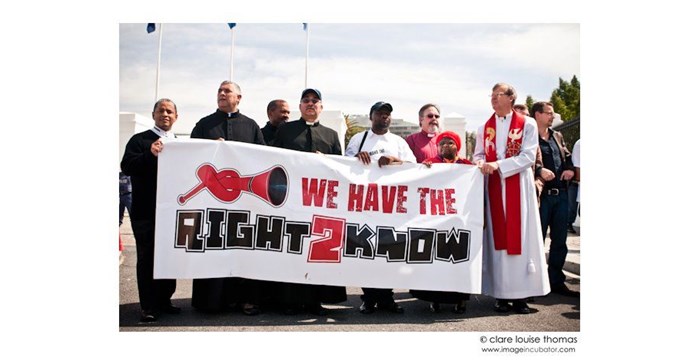Right2Know Campaign calls for an urgent inquiry into the Media Development and Diversity Agency (MDDA). R2K is alarmed, but not surprised, by the state of disorganisation and disunity at the MDDA. Lack of oversight by the Parliamentary Portfolio Committee on Communications, lack of management stability and political interference in board appointments are some of the reasons for the current state.
Independent MDDA needed
Given the high concentration of media ownership and lack of diversity in our media, the role of the MDDA in strengthening our democracy is beyond question.
The majority of board members are not appointed by the parliament but seconded from government and big media corporations. CEOs are also usually drawn from either government or the corporate sector. The current CEO was seconded from the GCIS and yet still reports to the GCIS. At the same time, while office bearers or employees of a party, movement or organisation of a political nature are not allowed to be appointed to the board, Ronald Lamola, former deputy president of the ANC Youth League and former acting spokesperson for the Premier of Mpumalanga Province, has been shortlisted as a Board candidate. It is Right2Know’s position that the MDDA should be independent from both the executive and corporations, as with the SABC and IEC, it should account only to parliament.
Where are results of 2013 forensic probe?
This is not the first time the ugly head of corruption and maladministration has arisen at the MDDA. In 2013, Phelisa Nkomo, who since then has chaired the board, instituted a forensic probe into similar allegations and the G9 Group, a forensic consulting company based in Johannesburg, conducted the probe. The question is, “What happened to the forensic probe and what are the lessons?”
An example of lack of follow-up and oversight is the absence of remedial action after then-Minister of Communications, Faith Muthambi reported that in 2014/5 the MDDA board was not quorate, had a high vacancy level, only achieved 56% of key deliverables and that of the 32 approved positions, only 19 were filled.
Given the level of maladministration and mismanagement that has been revealed, it is clear that the upcoming board nomination process will require as much, if not more, scrutiny as has been given to the SABC processes. MPs must be vigilant and provide oversight to avoid what happened in 2016, when a convicted criminal was appointed to the board.
Increasing funding, institutional capacity
The MDDA has been historically underfunded for its mandate. This has worsened under the successive neo-liberal governments. Following the logic of the free enterprise, the agency assumes that projects will become sustainable under market conditions, in spite of their failures and evident hostility. R2K is convinced that the MDDA needs more funding in order to adequately carry out its mandate. This money must come from the state, the media industry and voluntary contributions.
Vacancies need filling
In order to capacitate the MDDA further, it will be necessary to fill in vacancies, such as the CEO and CFO. Crucial to the recruitment and retention of suitable leadership and management is the need to maintain high morale and respect for staff. R2K notes that MDDA has a high staff turnover rate, with officers serving only for a few months. Themba Dlamini was appointed as CEO in January 2017 and then took up position in the Public Protector’s office in May 2017.
Community newspapers need protecting
R2K is concerned about the impact of MDDA’s ineffectiveness on community newspapers, community radio and TV stations, many of whom are reliant on MDDA funding. We note that there are no antitrust provisions protecting small print media from take-overs or unfair competition. In the absence of MDDA funding, community newspapers face collapse.
R2K also notes that there are incessant delays in the disbursement of MDDA funds to approved recipients. In some cases, community media organisations have received their first instalments 11 months after application. Some institutions have come close to having their licenses revoked by Icasa, after temporarily ceasing operations, because of delayed payments from the MDDA.
R2K reiterates the call for an effective, well-funded and independent MDDA.







































